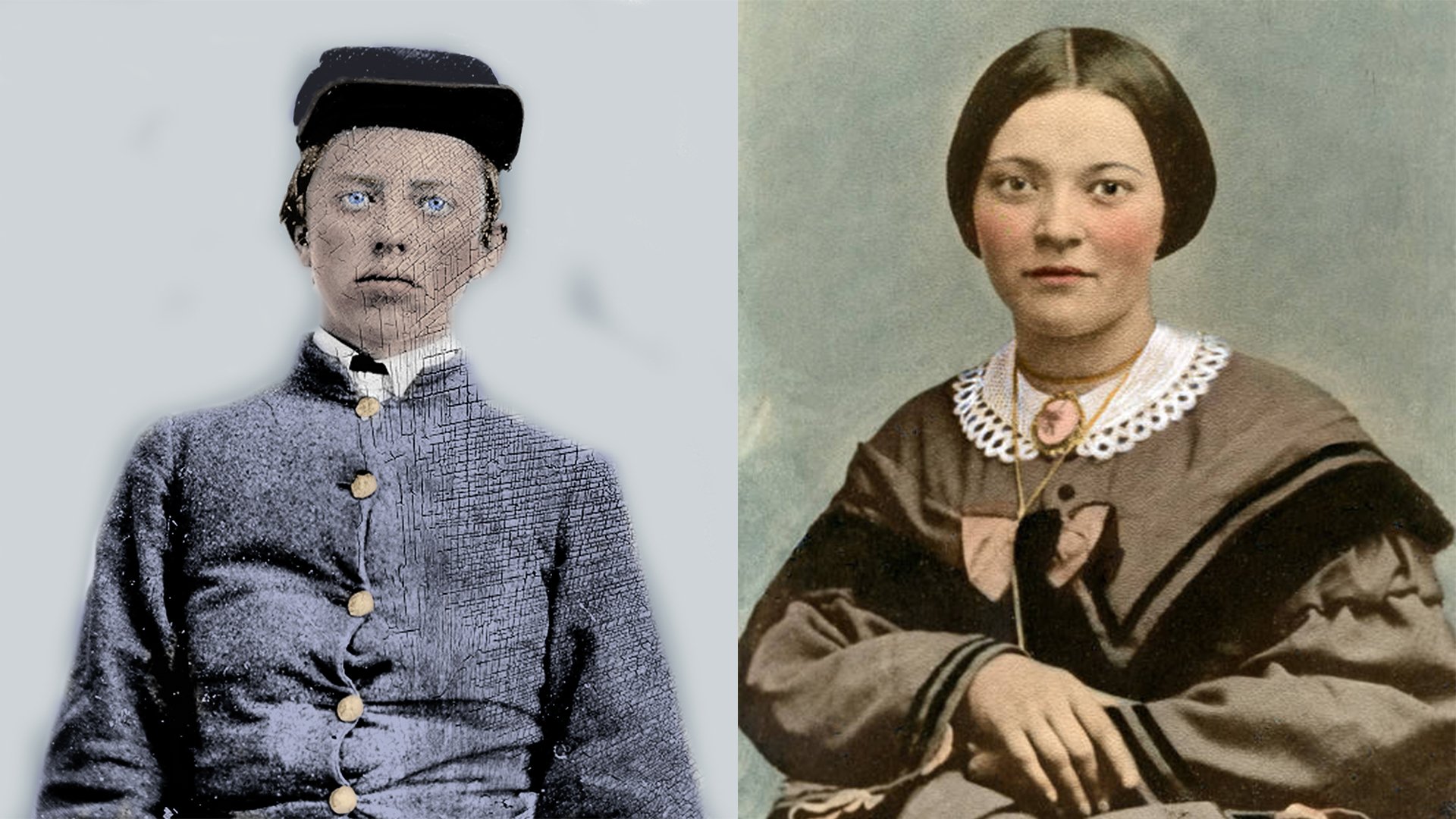
People
Learn about the Civil War in the Valley from the stories of the men, women, soldiers, and civilians that lived through it
Eliza Clinedinst-Crim
New Market Resident
1838 - 1931
Eliza “Lydie” Clinedinst was a woman who lived in New Market, Virginia during the Civil War. She was an eyewitness to the Battle of New Market fought on May 15, 1864 and helped to care for the wounded soldiers after the battle, including the mortally wounded VMI Cadet Thomas Garland Jefferson.
Lydie Clinedinst was born in New Market in 1838 and lived in a house along Congress Street in the middle of town. On May 15, 1864, she witnessed the VMI cadets charge down Shirley’s Hill and the hand-to-hand fighting in the churchyard. She wrote a letter to a friend in 1909 describing the battle and caring for the wounded including the mortally wounded Thomas Garland Jefferson.
“This was the first time I ever saw the Virginia Military Cadets. I will never forget those brave boy soldiers as they ran down the hill to victory and death.
They commenced carrying the dead from the field as the cadets passed on down the road. They carried some of them by our door. I could not stay in after I saw this. I ran on down to the battle field to help with the wounded. I was the first woman to go there. Some came afterwards and did noble work. O, what a sickening sight after the battle.
I stayed up all night to help the wounded. A cold rain was falling and so many shivered with such severe chills. We helped to carry the wounded into the old Rice home. We made a fire and gave them warm drinks; but many died that night. Our poor soldiers, how they suffered and died that day!
I left the field to come home to make tea for the wounded. On my way up I met the poor little boy soldiers of the Virginia Military Institute. One cadet wanted to borrow an ax to cut wood to make a fire and get supper. They were too proud to beg. I took them in and gave them their supper. One said he was fifteen years old. He wanted his bread spread with preserves. He sat down just like a little child to eat from mother’s hand.
I returned to the battle field with the hot tea, and on my way down I met many cadets coming into town. Nearly all were barefooted. They lost their shoes in the mud as they ran through a plowed field, and all were so hungry and tired.
They told me about a poor little cadet lying down at the Lightfoot farm, badly wounded. I told them to bring him up to my home, where he would be more comfortable. He laid there all night, but in the morning after the battle, Moses Ezekiel brought him to my home in an ambulance and carried him in.
My good old mother put him in her own bed, as it was the only bed we had downstairs. When we laid him down he looked up at me, and said: “Sister, what a good, soft bed.” Mother had an old-time feather bed, and it must have felt soft to him after lying on the hard ground.
This sweet little cadet was from Amelia County, Va. His name was Thomas Garland Jefferson. He was about sixteen years of age, was blue-eyed, and had golden hair. I will never forget him and his sweet, boyish face. He was shot in the breast, and the bullet was cut out of his back. His sufferings were intense, but he bore up so well and never complained. Cadet Ezekiel nursed him very tenderly. His own mother could not have done more for him
When Cadet Jefferson fell, two of his comrades hastened to his aid. Indifferent to his own comfort, with outstretched hand he pointed to the front, saying: “That is the place for you; you can do me no good.” He urged them to the front, saying words which should be immortal.
The evening before he died, he called Cadet Ezekiel to read for him. He read the fourteenth chapter of St. John: “Let not your heart be troubled. Ye believe in God, believe also in me. In my Father’s house are many mansions. I go to prepare a place for you.”
I went to smooth his pillow, and he said: “Sister, what beautiful hands.” He called, “Duncan, come and light a candle; it is growing dark.” The blindness of death came over him. He died about midnight in Moses Ezekiel’s arms. He was buried in the old churchyard where they fought so bravely.”
After the war, Eliza Clinedinst married Confederate veteran John Crim and kept a regular correspondence with many of the VMI Cadets, especially Moses Ezekiel who became a famous sculptor after the war.
Eliza Crim was presented with the “New Market Cross of Valor” and given the title “The Mother of the New Market Cadets” She died in New Market in 1931 at the age of 93. The VMI Cadets carried her flag-draped coffin and she was buried in Emmanuel Lutheran Cemetery in New Market.

